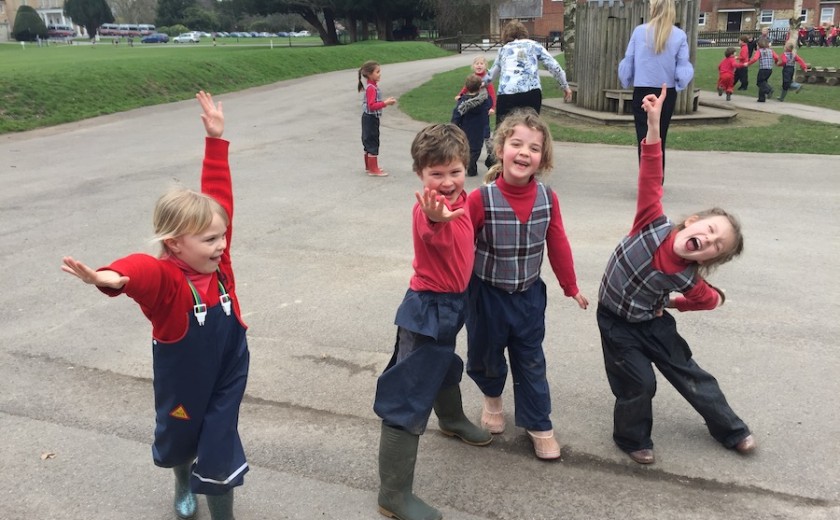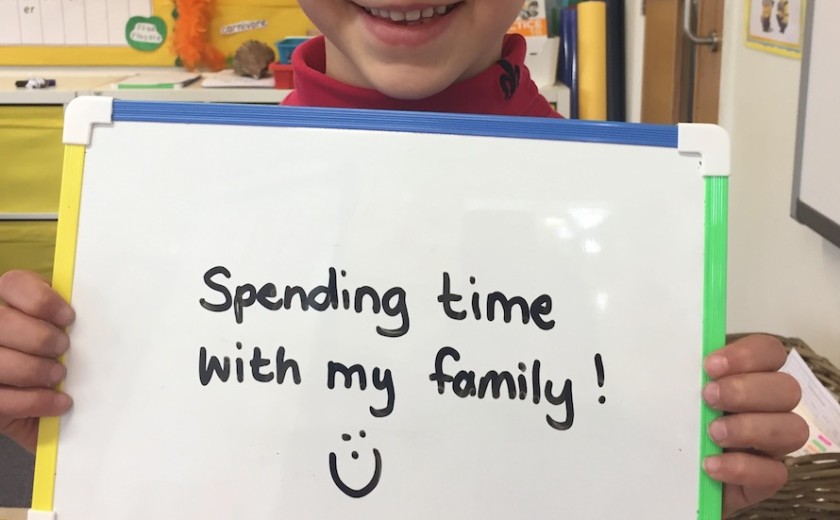Sam Pollock, Senior Mistress, shares some top tips - from positive psychology expert Professor Martin Seligman - to help children stay afloat now and in the future.
As a parent, what do you hope for (apart from everyone being ready for school in time, and for clothes to make their own way into the laundry basket)? Most of the parents I speak with tell me that they have plenty of hopes for their children's futures - great relationships, fulfilling work, interesting lives. Above all, parents say that they just want their children to be happy. Not surprisingly, there has been a lot of research conducted on happiness and how best to live well. A constant stream of information flows through our inboxes and social media feeds with many varied suggestions of how to achieve lasting happiness. It can be difficult to decide how to offer our children the best chance of being content now, and in the future.
I recently attended an exciting conference on wellbeing in education and heard from a plethora of speakers including various organisations that promote happiness in schools, and individuals who had been through dramatic life events and were sharing their journeys to achieving happiness again. Amongst these speakers was the highly acclaimed Professor Martin Seligman, a leading authority in the field of positive psychology. Positive psychology differs from traditional psychology because it focusses on the positives of wellbeing, exceptionalism, strengths and flourishing, rather than the negatives. Ultimately, it concentrates on learning how to live a meaningful, happy and engaged life.
Thankfully his research gives parents some constants to work with: five key elements which repeated studies have identified as essential to psychological wellbeing: appreciating positive emotions, being fully engaged, having healthy relationships, achieving goals and establishing a sense of meaning and purpose.
From this research, here are five simple things he suggests we can do to help our children stay afloat for the long haul:
- Draw attention to positive emotions – keep a gratitude diary with your children and ask at the end of each day "What went well?"
- Allow time to play – create regular spaces for children to be completely absorbed in an activity without having to rush.
- Encourage connections with a range of ages – where possible advocate for face to face interactions. Children learn empathy from reading faces and bodies.
- Allow young people to struggle a little in order to meet their goals – talk about the sense of satisfaction that comes with hard work. Praise effort rather than result.
- Involve children in helping others in small ways – the research shows that kindness to others delivers a sense of meaning more surely than anything else.
What struck me instantly was how at Westbourne House these five strands are at the heart of everything we do academically and pastorally. We are lucky as educationalists in the private sector to have the freedom to structure our curriculum as we see fit, to dedicate time to wellbeing, have the resources/facilities to make things happen and have a beautiful environment which acts as a backdrop to everything we do.
Our recent recognition of International Happiness Day, despite its name, was just as much about wellbeing as happiness, and many of the activities and events we did on the day were about creating a feeling of wellbeing: being grateful for what we have, taking the time to have fun as a group and drawing attention to positive emotions. We asked the children and staff to write down what made them happy, which really brought home to me how it’s the simple things that bring happiness and comfort. Each person would pause to think before answering something like… sunshine, playing with my friends, toasting marshmallows, walking my dog on the beach.
As we consistently weave the five essentials of wellbeing into school life, these essentials can provide an anchor for us all, parents and children, even when the wind isn’t at our back.
I am very excited for next term’s focus on our Westbourne Way strand ‘Perseverance’ into which the pastoral team have interwoven a ‘Positivity Week’ which launches on 20 May. We will be looking at motivation, talents, wellbeing, celebration and feeling good.






